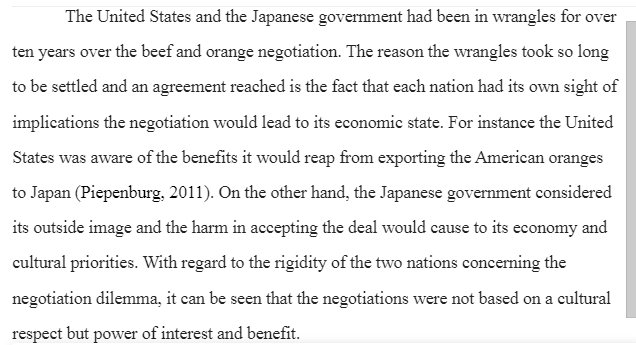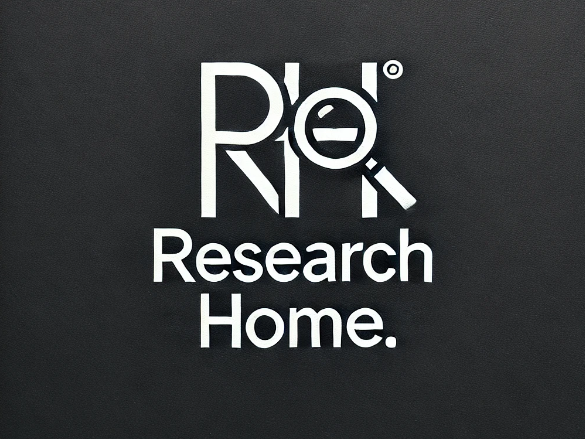Culturally Imposed Negotiation Strategy-Oranges Between the USA and Japan
The USA and Japan were in negotiations for a period of ten years, (1977 – 1988) over oranges. The Americans had certain goals that they wanted to accomplish in these negotiations. These goals included; exporting of American oranges in the Japanese market, demand that Japan liberalizes its market, and to eliminate the trade barriers in Japan. The Japanese also had their own goals that they wanted to accomplish in the negotiation process. These included; maintaining its positive image outside Japan, avoiding intervention from GATT (General Agreement on Trade and Tariffs), and to avoid sanctions from abroad.
Initially, the Japanese refused to negotiate right away, and started negotiating only when Americans threatened them that they would take the issue to GATT panel.Using Hofstede’s Model of Cultural Dimensions from our textbook, compare and contrast the cultural differences that might influence both parties.
- Based on the cultural differences, develop a culturally responsive negotiation strategy for American negotiators to deal with Japanese negotiators.
The requirements below must be met for your paper to be accepted and graded:
- Write between 750 – 1,250 words (approximately 3 – 5 pages) using Microsoft Word in APA style, see example below.
- Use font size 12 and 1” margins.
- Include cover page and reference page.
- At least 80% of your paper must be original content/writing.
- No more than 20% of your content/information may come from references.
- Use at least three references from outside the course material, one reference must be from EBSCOhost. Text book, lectures, and other materials in the course may be used, but are not counted toward the three reference requirement.
- Cite all reference material (data, dates, graphs, quotes, paraphrased words, values, etc.) in the paper and list on a reference page in APA style.
References must come from sources such as, scholarly journals found in EBSCOhost, CNN, online newspapers such as, The Wall Street Journal, government websites, etc. Sources such as, Wikis, Yahoo Answers, eHow, blogs, etc. are not acceptable for academic writing.
Answer Preview-Culturally Imposed Negotiation Strategy

